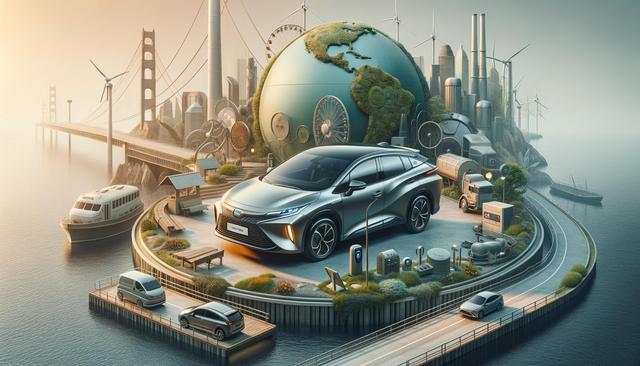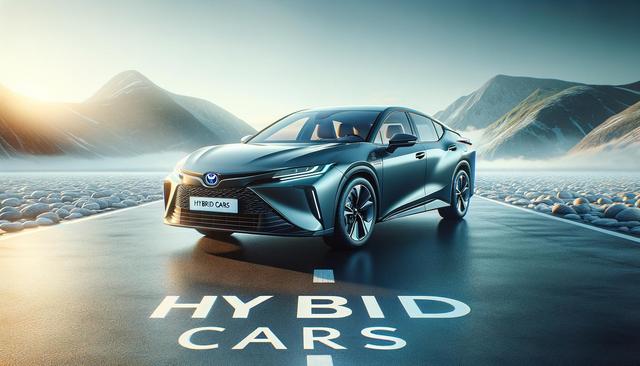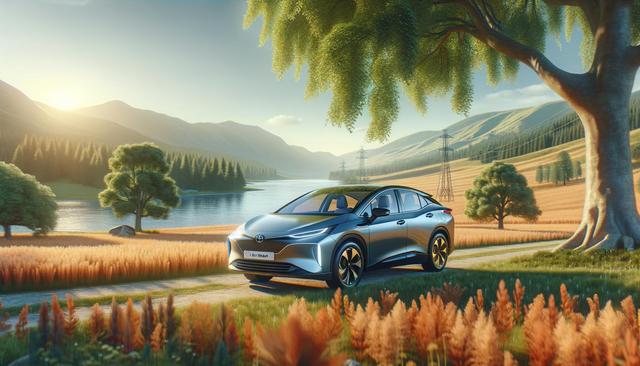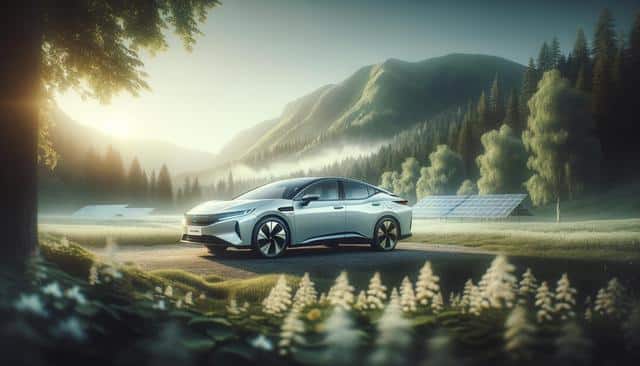What Are Hybrid Cars and How Do They Work?
Hybrid cars are vehicles that combine a traditional internal combustion engine with an electric motor and battery. This dual-power setup allows them to optimize fuel usage and reduce emissions. The system automatically switches between the gasoline engine and electric motor, or uses them simultaneously, depending on the driving conditions. The electric motor is especially useful at lower speeds or during stop-and-go traffic, where fuel efficiency can be maximized. This design not only helps in conserving fuel but also contributes to a quieter, smoother ride. In many cases, the electric component recharges itself through regenerative braking, a process that converts kinetic energy into electricity.
There are several types of hybrid systems:
- Full hybrids: These can drive the car with just the electric motor, just the gas engine, or both.
- Mild hybrids: These assist the gas engine but cannot power the car alone.
- Plug-in hybrids (PHEVs): These have larger batteries that can be recharged via an external power source, offering greater electric-only range.
Understanding how these systems operate helps consumers make informed choices about their transportation needs. To learn more, visit https://go.jexli.com/postback?clickId={click_id}&payout={epayout}&p2={campaign}.
Environmental Benefits of Hybrid Cars
One of the most compelling reasons to consider a hybrid car is its reduced impact on the environment. By using electricity in conjunction with gasoline, hybrids emit fewer pollutants and greenhouse gases compared to traditional vehicles. This is particularly important in urban areas where traffic congestion leads to higher emissions. Hybrids also contribute to lowering noise pollution, thanks to their quieter electric motors.
Key environmental benefits include:
- Lower tailpipe emissions
- Improved fuel efficiency
- Reduced reliance on fossil fuels
- Less energy consumption during idling and low-speed driving
In countries and cities with strict emissions regulations, hybrid vehicles often qualify for special incentives such as tax rebates or access to restricted traffic zones. These benefits align with growing global efforts to combat climate change and promote sustainable transportation. For more insights, check https://go.jexli.com/postback?clickId={click_id}&payout={epayout}&p2={campaign}.
Cost Considerations and Long-Term Value
When evaluating the cost of a hybrid car, it’s important to look beyond the initial purchase price. While hybrids can be priced slightly higher than their gasoline-only counterparts, they often make up for this in fuel savings and reduced maintenance costs over time. The electric motor and regenerative braking system lessen the wear and tear on traditional engine components and brakes, potentially extending the vehicle’s lifespan.
Cost-related advantages include:
- Lower fuel expenses
- Fewer oil changes and brake replacements
- Eligibility for government incentives or tax credits
- Higher resale value compared to some traditional vehicles
Many drivers find that the long-term savings offset the higher upfront cost, especially for those who drive frequently or in traffic-heavy areas. For a closer look at financial benefits, visit https://go.jexli.com/postback?clickId={click_id}&payout={epayout}&p2={campaign}.
Performance and Driving Experience
Hybrid cars are designed not just for efficiency but also for a comfortable and responsive driving experience. Thanks to the instant torque provided by electric motors, hybrids can offer brisk acceleration, particularly at lower speeds. Many models also feature advanced driving modes, allowing users to switch between eco, normal, and sport modes based on their preferences and driving conditions.
Performance features often include:
- Seamless transition between electric and gas power
- Regenerative braking to enhance battery life
- Quiet operation, especially at low speeds
- Innovative dashboard displays for energy monitoring
These features contribute to a user-friendly and enjoyable driving experience, making hybrids a viable option not just for eco-conscious consumers but also for those who value comfort and technology. Learn more about what you can expect behind the wheel at https://go.jexli.com/postback?clickId={click_id}&payout={epayout}&p2={campaign}.
Choosing the Right Hybrid for Your Lifestyle
With a growing number of hybrid models on the market, finding the right match depends on individual needs and preferences. From compact cars and sedans to SUVs and even trucks, there’s a hybrid for nearly every lifestyle. When choosing a hybrid, consider factors such as daily driving habits, access to charging stations (for plug-in hybrids), and the types of roads you frequently drive on.
Helpful selection criteria include:
- Commute distance and traffic conditions
- Availability of charging infrastructure
- Desired size and cargo space
- Budget and financing options
For those who frequently drive in cities or face long commutes, a plug-in hybrid might offer the flexibility and cost-efficiency needed. In contrast, drivers in rural areas might benefit more from a traditional full hybrid. To explore hybrid options that suit your lifestyle, visit https://go.jexli.com/postback?clickId={click_id}&payout={epayout}&p2={campaign}.
Final Thoughts: Is a Hybrid Car Right for You?
Hybrid cars offer a practical solution for drivers looking to reduce their environmental impact without sacrificing performance or convenience. They combine the benefits of fuel efficiency, lower emissions, and long-term savings, making them an appealing choice in today’s automotive landscape. Whether you’re a city commuter or a weekend traveler, there’s likely a hybrid model that aligns with your needs.
As more consumers prioritize sustainable choices, hybrid vehicles continue to gain traction. By understanding how they work and evaluating your driving habits, you can make a well-informed decision. If you’re considering making the switch, now is a good time to explore your options and see how a hybrid car could fit into your lifestyle.




Leave a Reply